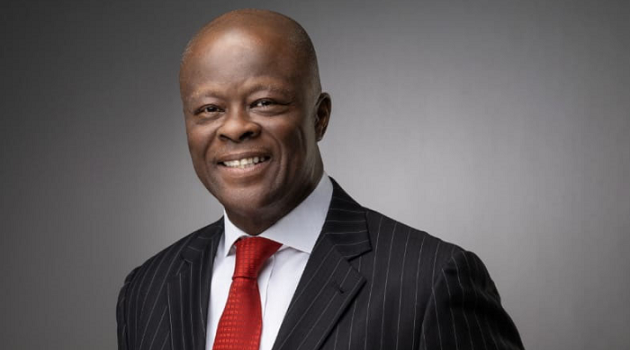E-Financial
UBA Upgrades Chatbot Features as Leo Launches Service on Google Business Chat, Instagram

United Bank for Africa (UBA) Plc, Africa’s Global Bank, has announced the expansion of the services of Leo, its Artificial Intelligence chatbot to Google Business Chat and Instagram.

Leo – UBA’s AI-powered chatbot, which enables customers to make use of their social media accounts to carry out key banking transactions – was first introduced in January, 2018.
It has since evolved to become a custom-fitted, personalised virtual banker to several UBA Customers across its 20 African countries. Before now, UBA’s Leo was servicing customers on Facebook Messenger, Whatsapp and Apple Chat.
The bank also announced an interesting upgrade to the existing features of Leo, where customers can now carry out their activities in a 3D animated format.
Armed with this upgrade and with its recent expansion to Instagram and Google Business, customers will now be able to carry out more transactions from the comfort of their homes and can now perform more activities such as funds transfer, checking balances, buying airtime and data, and getting their bank statements with ease, from any of these social media platforms.
Kennedy Uzoka, UBA’s group managing director/chief executive officer, who spoke about the upgraded features of Leo, explained that the bank was always on the lookout for innovative ways to develop strategies aimed at easing transactions for the bank’s numerous users, while ensuring utmost safety of their transactions.
He said, “At UBA, we have been working with technology giants that have the global capacity to ensure not only seamless but also effortless banking for millions of our customers across Africa. We at UBA, have collaborated with the very best to actualise this unbeatable innovation that is capable of revolutionising the way banking is done in Africa.”
He disclosed that Leo’s activities has aptly spread across Africa, changing the face of e-banking in other key African locations including Cameroon, Zambia, Cote D’Ivoire, Senegal, Congo DRC, Tanzania, Kenya, Uganda, Sierra Leone, Gabon, Chad, Congo Brazzaville, Benin, Mozambique, Zambia, Guinea, Burkina Faso, Mali.
Uzoka emphasised that the uniqueness of Leo lies in the convenience. “Customers can initiate transactions without leaving their favoured phone applications. By bringing Leo to the comfort zone of its customers, UBA’s chat banking became a pioneer innovation and has since enjoyed leadership status in the chat banking space,” he explained.
Since inception, Leo has been effortlessly enhancing the digital customer experience in banking and also achieving a range of other benefits like 24/7 availability as the chatbot Leo stays available round the clock to assist customers and handle the common financial queries asked by the customers.
United Bank for Africa Plc is a leading Pan-African financial institution, offering banking services to more than twenty-five (25) million customers, across 1,000 business offices and customer touch points in 20 African countries.
With presence in New York, London and Paris, UBA is connecting people and businesses across Africa through retail, commercial and corporate banking, innovative cross-border payments and remittances, trade finance and ancillary banking services.
E-Financial
Zumax Files N4.1Bn Suit against CBN over ‘Fraudulent’ Receivership

Zumax Nigeria Limited, an oil services company, has filed a N4.1 billion lawsuit against the Central Bank of Nigeria (CBN), alleging gross negligence and complicity in what it calls a fraudulent receivership imposed by the apex bank.

In the case, which is before the Federal High Court, Lagos, Zumax claimed that the CBN failed in its statutory duty to supervise banks and protect customers’ interests.
At the hearing of the matter on Tuesday before Justice Akintoye Aluko, Chief Wole Olanipekun (SAN) told the court that the Plaintiff (Zumax) had an application dated February 20, 2025, asking the court to hear the application.
He urged the court to allow him to move the application as the defendant had responded.
Olanipekun also told the court that the Plaintiff and defendant’s preliminary objections can be consolidated and heard together.
He stated that the priority of which application to be heard first shouldn’t arise as the Plaintiff has not opposed the hearing of CBN’s preliminary objection.
But Adeleke Agboola (SAN), counsel, counsel, told the court that the defendant has a preliminary objection in the suit, which commenced as a writ of summons challenging the jurisdiction of the court.
He argued that CBN filed its notice of preliminary objection within time and that the Plaintiff has responded to it.
Agboola said: “This preliminary objection has priority over any other applications. The Plaintiff’s application is not meritorious.
“There is no suggestion by the claimant that we did not file within time. We are saying that this court does not have the jurisdiction to hear this matter. I urge your lordship to allow us to argue this matter.
“There is no doubt that preliminary objection takes precedence; it says it must be heard first, and determining our objection is very serious; we have complied strictly by the rules.
“We urge this court to hear the preliminary objection and dismiss the Plaintiff’s application.”
In his response, Olanipekun said: “My learned friend said the application we filed is not meritorious. It is the court that can make any pronouncement on that.
“My lord, even when we talk of being tidy, we are not saying the court should not hear his preliminary objection. He is now the one saying that our application should not be heard.
“The court has to determine whether the objection has to be heard first or the Plaintiff’s application dated February 20, 2025, has to be heard first.
“It’s no longer the law; in fact, it has never been the law that when there is a preliminary objection, the court will say let’s take it first. We urge your lordship to take our application that has not been contested by the defendant.”
After listening to the submissions and arguments of both parties, Justice Aluko adjourned the case till April 22, 2025, for ruling on which application to hear first.
According to court documents, Zumax had and maintained its account with the defunct IMB International Bank Plc., which, under several mergers and consolidations of banks, ultimately fused into the much larger banking institution known as First City Monument Bank (FCMB).
The Plaintiff said it obtained a facility from IMB International Bank, an overdraft facility of N50m, which was later increased to N200m in/or at the first half of 1998.
However, the bank allegedly inflated the company’s debt and, by December 6, 2002, claimed it had risen to N465.6 million, the claim which was vehemently disputed by Zumax.
Zumax contends that FCMB, under its former Managing Director Edwin Chinye, took control of its foreign currency earnings held in a JP Morgan Bank account through its sister company, Redsear Limited.
According to the plaintiff, the Bank’s Managing Director not only insisted upon and got shares in Redsears Limited and a directorship of that company as a condition precedent for the loan, he also allegedly inserted himself as the lone signatory for the company’s bank account with JP Morgan Bank.
The plaintiff further alleged that “the bank misappropriated $ 4 million from this account, a shortfall discovered during an audit.
“Rather than addressing the dispute, FCMB appointed receivers to take over Zumax’s operations, a move the company described as fraudulent.
“The receivership, which lasted from December 2002 until 2022, led to severe financial losses, including the collapse of Zumax’s business and the loss of contracts with multinational oil companies such as Chevron.
“The company claimed it was unable to operate for two decades due to the receivership, which was based on what it describes as an entirely fabricated debt.
“Zumax further alleged that despite repeated petitions, the CBN failed to investigate FCMB’s actions or intervene to prevent the alleged financial mismanagement.
“The company maintained that a 2007 CBN report confirmed that it had paid over N547 million to FCMB, proving it was never in debt to the bank.
“Additionally, the Court of Appeal ruled in December 2021 that the consent judgment upon which the receivership was based was fraudulent and should be set aside.”
The plaintiff is seeking a court declaration that the CBN was negligent in its duty to regulate Nigerian banks.
It’s also asking for special damages amounting to $ 41 million, including lost income and asset depreciation; general damages of N2 billion, exemplary damages of N2 billion, and legal costs amounting to N100 million.
But the CBN’s preliminary objection is challenging the jurisdiction of the Court to hear the matter.
E-Financial
FG to Harmonise Fiscal Data Across MDAs

Efforts to harmonise fiscal data across government institutions have commenced in earnest, with Mr Wale Edun, minister of Finance and Coordinating Minister of the Economy, spearheading the meeting to achieve the mission.

Mr Wale Edun, minister of Finance and Coordinating Minister of the Economy,
Key stakeholders, including the Minister of State for Finance, Dr Doris Uzoka-Anite; the Accountant General of the Federation, Shamsedeen Babatunde Ogunjimi, and the Director General of the Budget Office, Mr Tanimu Yakubu, met on Monday with Edun, a statement issued by Director of Information in the ministry Mohammed Manga, said.
The said discussions centered on discrepancies in fiscal data across government institutions, which have affected Nigeria’s credit ratings and borrowing capacity.
The Minister emphasised the need for synergy between agencies such as the Budget Office, the Accountant General’s Office, and the Debt Management Office (DMO).
“Delivering accurate and comprehensive fiscal data is critical to economic stability and investor confidence,” Edun said Attendees agreed on the establishment of a Fiscal Data Coordination Framework, which includes a main committee, a subcommittee, and technical teams dedicated to standardising fiscal reporting methodologies and economic assumptions.
The Minister affirmed that Nigeria must take ownership of its fiscal data credibility, reducing dependence on external institutions.
The meeting concluded with a firm commitment to implementing the framework, reinforcing transparency, strengthening investor confidence, and enhancing Nigeria’s economic outlook.
E-Financial
Mastercard Announces Bold Investments to Propel Africa’s Digital Payments Economy Towards $1.5 Trillion Goal by 2030

Africa’s digital payments economy is set to grow from strength to strength according to a Mastercard-commissioned report by Genesis Analytics stating that the digital payments economy is expected to reach $1.5 trillion by 2030.

As a longstanding technology partner to Africa, Mastercard continues to strengthen its commitment to the continent’s digital growth through strategic investments, public-private partnerships, and innovation initiatives that drive financial health and economic growth. By fostering collaboration with key stakeholders, Mastercard aims to enhance digital connectivity, expand economic opportunities, and enable millions of people and businesses to thrive in the digital economy.
Driving Africa’s digital growth
Mastercard’s investments will focus on three key areas to further accelerate digital adoption and financial inclusion:
- Enabling Africa’s Micro, Small and Medium Businesses (MSMEs)
- Empowering Africa’s fintech sector
- Scaling remittances and cross-border payments
“Africa is filled with immense possibilities, and its people have the potential to shape the global economy in the decades ahead. Mastercard remains deeply committed to driving digital transformation across the continent, working closely with entrepreneurs, merchants, banks, start-ups, telcos, and governments. By increasing our investments, expanding innovation, and fostering inclusion, we are helping build a more connected and accessible digital future,” said Dimitrios Dosis, president, Eastern Europe, Middle East and Africa at Mastercard.
Africa’s digital transformation is underpinned by rapid advancements in internet penetration and financial inclusion, two of the fastest-growing enablers of digital payments across the continent. According to the report, internet penetration in Africa is projected to grow at a compound annual rate of 20%, while financial inclusion is set to expand at 6% per year.
These trends signal a strong shift towards digital transactions, with businesses and consumers increasingly embracing contactless solutions, further accelerating economic participation and financial accessibility across the region.
“For over five decades, Mastercard has worked alongside African governments, businesses, and communities to advance financial inclusion and economic development. With Africa projected to host nine of the world’s 20 fastest-growing economies, we are focused on leveraging our expertise and technologies to support the continent’s continued digital transformation. Our investments today will help build a more resilient economy for the future,” said Mark Elliott, division president, Africa, Mastercard.
1. Enabling Africa’s Micro, Small and Medium Businesses (MSMEs)
Recognizing that MSMEs account for over 50% of Africa’s GDP, Mastercard continues to provide digital solutions that empower small businesses and drive economic expansion.
This commitment is reinforced by the Mobilizing Access to the Digital Economy (MADE) Alliance: Africa, in partnership with the African Development Bank Group. The initiative aims to extend digital access to critical services for 100 million individuals and businesses over the next decade. As part of its broader goal to bring users onto Community Pass, Mastercard has set a target to register 15 million users in Africa within five years. Community Pass is a social enterprise initiative that digitizes and connects remote, and rural communities to governments, NGOs, and private sector services.
To further fuel the potential of Africa’s MSMEs, Mastercard will accelerate easy access to its proprietary solutions such as Tap on Phone and SME-in-a-Box. The technology company will also continue to enable access to finance through its Track Micro Credit Program, which has already benefited thousands of micro merchants. Furthermore, African entrepreneurs will continue to gain knowledge on how to thrive as business owners through free learning resources such as The Entrepreneur’s Odyssey and Mastercard Trust Center.
2. Empowering Africa’s fintech sector
Africa’s fintech ecosystem is a key driver of digital transformation and economic progress. Nearly half of all fintech firms on the continent have been founded in the last six years, collectively raising $6 billion in equity financing since 2000.
Mastercard is partnering with banks, telcos, and other service providers across Africa and internationally to help accelerate fintech growth and expansion in new markets. For example, Mastercard’s partnership with M-Pesa in Kenya and MTN Group Fintech has enabled millions of unbanked individuals to access digital financial services through mobile money platforms.
Similarly, Mastercard’s collaboration with digital wallet providers and e-commerce platforms has facilitated the integration of payment solutions into digital ecosystems, enabling seamless transactions for consumers and merchants alike. For example, Mastercard’s global Fintech Express program provides fintech companies with an end-to-end experience for card issuance. By combining its identity, biometric, AI and open banking capabilities, Mastercard helps protect consumers across the spectrum of internet and payments scams.
3. Scaling remittances and cross-border payments
Seamless cross-border transactions are essential for Africa’s economic mobility. According to the World Bank, Africa received approximately $100 billion in remittances in 2023, accounting for about 6% of the continent’s GDP.
Mastercard is playing a key role in enabling the infusion of funds into local economies. Through a single, secure point of access, Mastercard Cross–Border Services allow people and businesses to remit money securely, and with certainty.
Local partnerships such as the recent agreements with Africa’s Access Bank and Equity Bank, are enabling Mastercard to make cross-border payments more simple, convenient, and accessible. Furthermore, they are enabling customers in multiple markets to make cross-border payments globally via bank accounts, mobile wallets, cards, and cash.
Mastercard remains committed to driving Africa’s digital growth through investment, innovation, and partnerships. By enhancing financial inclusion, expanding digital transactions, and strengthening cross-border connectivity, the company is helping to build a more inclusive and resilient digital economy for the African future.

 Broadcasting3 days ago
Broadcasting3 days agoNGO Blasts MultiChoice for Tariff Hike in Nigeria, Slash in South Africa

 News3 days ago
News3 days agoNIPOST Explains Clamping Down on Illegal Logistics Services in Enugu

 E-Business3 days ago
E-Business3 days agoOtti, Abia State Gov Promises Internet Access for all Abia Communities in 9 Months

 News3 days ago
News3 days agoNESREA Urges Nigerians to Dispose Batteries Properly to Avoid Hazards

 Telecom3 days ago
Telecom3 days agoTelcos Mull Introduction of Different Tariff Plans for Different States

 E-Financial3 days ago
E-Financial3 days agoCITN Seeks AI to Curb Revenue Leakage in Nigeria’s Tax System

 News3 days ago
News3 days agoTony Elumelu Foundation Grants $15m to 3,000 African Entrepreneurs

 News2 days ago
News2 days agoPolice Arrest 4 Bank Staff over Alleged ₦270m Fraud, Money Laundering


























